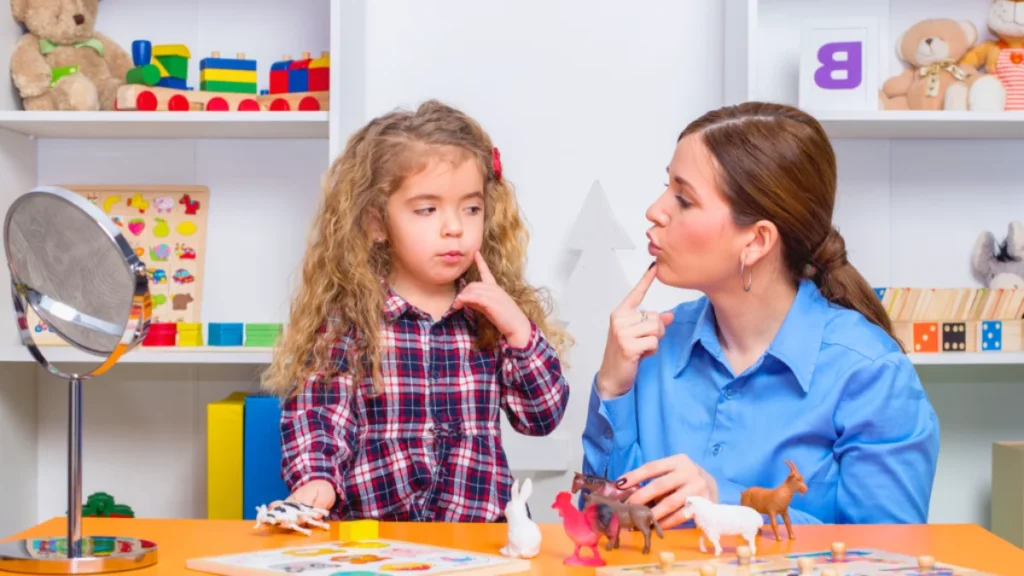Finding the right speech therapist for your child involves looking at professional qualifications, personal connection with your child, and practical considerations that make therapy accessible and effective. The right therapist combines proper education and certification with the ability to connect with your child and create personalized treatment plans. Jill Dews, M.A., CCC-SLP, has helped families in Mission Viejo make this important decision for over 20 years at Let’s Talk Speech and Language Therapy, understanding that the right therapeutic relationship can transform a child’s communication abilities and confidence.
Selecting the ideal pediatric speech therapist is a critical undertaking that can substantially influence your child’s communication skills and overall development. This decision, crucial for your child’s capacity to construct and foster relationships, hinges on key differentiators that parents should consider.
The therapist’s educational background and certifications ensure that the individual you entrust with your child’s development adheres to professional standards and possesses the necessary expertise, including requisite degrees, state-specific licensure, and endorsements from recognized professional bodies such as the American Speech-Language-Hearing Association (ASHA).
Essential Professional Qualifications
Professional credentials provide the foundation for safe, effective speech therapy and give parents confidence that their child is receiving appropriate care from qualified specialists.
Educational requirements form the baseline for speech therapy expertise. Look for therapists who have earned a Master’s degree in speech-language pathology from an accredited program. This advanced education ensures they understand the complex aspects of communication development and evidence-based treatment approaches.
ASHA certification through the Certificate of Clinical Competence in Speech-Language Pathology (CCC-SLP) represents the gold standard for professional competency. This certification requires completing specific coursework, clinical hours, and passing national examinations. It also mandates ongoing continuing education to maintain current knowledge.
State licensure provides additional oversight and accountability within your local area. Each state has specific requirements for speech therapists to practice legally, including background checks and adherence to state regulations. Here are key credentials to verify:
- Master’s degree in speech-language pathology from an accredited university
- Current ASHA certification with CCC-SLP designation
- Valid state license to practice in your area
- Clean professional record with no disciplinary actions
Professional memberships in organizations like ASHA demonstrate ongoing commitment to the field and access to current research and best practices that benefit patient care.
Commitment to Ongoing Learning
The field of speech therapy constantly evolves with new research and techniques, making continuing education essential for providing the most effective treatment approaches.
Staying current with innovative techniques helps therapists offer the most effective interventions available. Therapists who attend workshops, conferences, and training sessions can incorporate new strategies that might work better for children who haven’t responded to traditional approaches.
Evidence-based practice ensures that treatment methods have scientific support rather than relying on outdated or unproven techniques. Jill Dews and the team at Let’s Talk Speech and Language Therapy prioritize using research-backed approaches while staying open to promising new developments in the field.
Professional development activities include formal coursework, online training modules, peer consultation, and participation in professional organizations. These activities help therapists refine their skills and learn about advances that could benefit their patients.
Building the Right Personal Connection
The relationship between your child and their speech therapist significantly impacts treatment success, making personal compatibility as important as professional qualifications.
Understanding individual needs helps therapists adapt their approach to match each child’s personality, interests, and learning style. A therapist who takes time to learn about your child’s preferences can incorporate favorite activities, characters, or topics into therapy sessions.
Communication style compatibility affects how well your child responds to instruction and feedback. Some children thrive with enthusiastic, animated therapists, while others prefer calm, gentle approaches. The right match helps children feel comfortable and motivated to participate.
Trust building happens when children feel safe and understood by their therapist. This relationship develops over time but should show early signs of positive interaction. Children who trust their therapist are more willing to try new activities and take risks necessary for progress.
Creating Personalized Treatment Plans
Effective speech therapy requires individualized approaches that address each child’s specific needs, goals, and circumstances rather than using generic programs for all children.
Comprehensive assessment forms the foundation for personalized treatment by identifying your child’s specific strengths and challenges across different communication areas. Detailed evaluation helps therapists understand what skills need development and which areas can support learning.
Goal setting involves collaboration between therapists and families to establish realistic, meaningful objectives that matter to your child’s daily life. Goals should address both immediate needs and long-term communication development appropriate for your child’s age and abilities.
Treatment adaptation means adjusting therapy approaches based on your child’s response and progress. Here are signs of effective personalized treatment:
- Activities are modified to match your child’s interests and learning style
- Goals are adjusted based on progress and changing needs over time
- Different teaching methods are tried when initial approaches aren’t working
- Family input is incorporated into treatment planning and modifications
Progress monitoring ensures that therapy remains effective and relevant as your child develops new skills and faces different communication challenges.

Recognizing When Changes Are Needed
Parents should know what signs indicate that current therapy isn’t working effectively and when it might be time to consider different approaches or therapists.
Lack of progress over reasonable timeframes suggests that current methods may not be the best fit for your child. While progress rates vary, you should notice some improvements in targeted areas within a few months of consistent therapy.
Poor engagement or resistance to therapy activities may indicate that the approach or therapeutic relationship isn’t working well. Children who consistently seem unhappy or unwilling to participate may benefit from different methods or therapists.
Communication concerns between families and therapists can interfere with treatment effectiveness. If you feel uninformed about your child’s progress or disagree with treatment approaches, these issues need addressing through discussion or potentially changing providers.
Family Collaboration and Support
Successful speech therapy depends on strong partnerships between therapists and families that support children’s communication development across all settings.
Open communication channels ensure that parents stay informed about their child’s progress and understand how to support therapy goals at home. Regular updates and clear explanations help families feel involved and confident about their child’s treatment.
Home practice guidance helps families reinforce therapy objectives during daily activities and routines. Therapists should provide specific, practical suggestions for incorporating speech practice into normal family interactions.
Feedback integration allows therapists to learn from parents’ observations about their child’s communication in different settings. Family input helps therapists adjust treatment to address real-world communication needs and challenges.
Practical Considerations for Success
Location, scheduling, and financial factors affect the sustainability of speech therapy services and should be considered when choosing a therapist or practice.
Convenient location reduces stress and makes it easier to maintain consistent therapy attendance. Practices that are reasonably close to home or school help families stick with treatment recommendations without excessive travel burden.
Flexible scheduling accommodates family needs and helps ensure regular therapy sessions. Look for practices that offer appointment times that work with your family’s schedule and can adjust when needs change.
Insurance compatibility affects the affordability and sustainability of speech therapy services. Verify that potential therapists accept your insurance plan and understand any coverage limitations or requirements for continued services.
Finding Your Child’s Perfect Match
Choosing the right pediatric speech therapist requires careful consideration of professional qualifications, personal compatibility, and practical factors that support successful long-term treatment relationships.
Let’s Talk Speech and Language Therapy in Mission Viejo provides families throughout Orange County with experienced, qualified therapists. Jill Dews is commitment to individualized care and family collaboration. Combined with her development of innovative tools like the Let’s Talk Early Intervention app, demonstrates the comprehensive approach needed to help each child reach their full communication potential.
Let’s Talk Speech and Language Therapy was recently voted “Best Speech Pathologist” in Ladera Ranch California, a fantastic accomplishment. Call us to see how we can help today!
Let’s Talk Speech and Language Therapy
27285 Las Ramblas, Suite #210
Mission Viejo, California 92691
(949) 218-0508
Driving Directions
Jill Dews, M.A., CCC-SLP
CA License #: SP12461
Link to Verify License
Frequently Asked Questions
How do I know if a speech therapist is right for my child?
Look for a therapist who has proper qualifications including ASHA certification and state licensing, demonstrates effective communication with both you and your child, and personalizes therapy approaches to match your child’s unique needs and interests. The right therapist will help your child feel comfortable while making measurable progress toward communication goals.
What if my child doesn’t improve with therapy?
Progress in speech therapy varies by individual, but you should notice some improvements within a reasonable timeframe. If progress seems stalled, discuss your concerns with the therapist first, as adjustments to the approach may help. If concerns persist, consider seeking a second opinion or exploring different therapy options that might better suit your child.
How long should we try with a therapist before making changes?
Give new therapeutic relationships at least 6-8 sessions to develop, as children need time to build comfort and trust. However, if your child consistently resists therapy, shows no progress after several months, or you have ongoing concerns about the approach or communication, it may be time to reassess whether the current therapist is the best fit.
Related Articles





